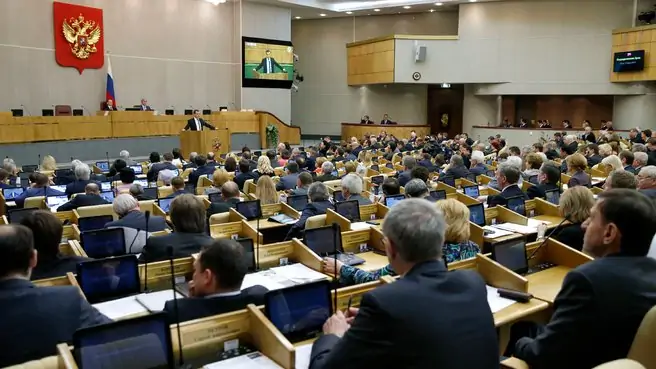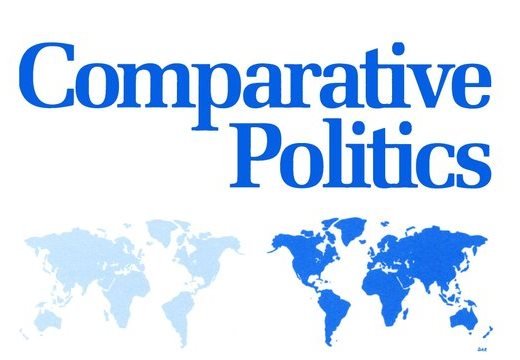(PONARS Eurasia Policy Memo) Why are some countries governed worse than others? In particular, why is contemporary Russia governed so much worse than one would expect given its degree of socio-economic development? As demonstrated in numerous recent assessments, Russia exhibits many major features of bad governance, including lack and/or perversion of the rule of law, rent-seeking, corruption, poor quality of state regulation, widespread abuse of public funds, and overall ineffectiveness of government. In 2018, for example, Russia ranked 138th out of 180 countries in the annual Transparency International Corruption Perceptions Index. In 2019, the composite evaluation of the Rule of Law Index by the World Justice Project ranked it as 88th out of 126 countries. According to the World Bank, the average indicator of corruption control in Russia in the period from 1996-2015 was -0.86 on a scale from -2.5 (lowest possible grade) tо +2.5 (highest possible grade).
What are the sources and mechanisms of governance in Russia? Is bad governance doomed to persist endlessly under authoritarian rule, or can the quality of governance be improved over time by certain policies? Recent discussions attempting to explain good and bad governance in various countries, regions, and policy areas have been quite extensive. How can we place present-day Russia onto this global governance map? And should we consider Russia as an outlier or, rather, as a laggard vis-à-vis many other developed states? We argue here that the Russian political regime provides insufficient incentives for good governance, and that attempts to improve the quality of governance without democratization will not ultimately prove fruitful.
Sources of Good and Bad Governance
Many scholars have sought to explain the sources of good governance and reasons for its failure. Although the conventional wisdom among experts is that authoritarian states are often governed poorly due to predatory political leaders who abuse their offices for the sake of political survival, there is a shortage of explanations for how effective and efficient governance can persist under non-democratic regimes. Meanwhile, the real practices of governance in post-communist Russia are more complex than one might expect judging by global indexes alone. Russia demonstrates several varieties of governance, including numerous instances of better-than-expected governance in various policy areas and geographical locations. Certain policy reforms conducted in the early 2000s had positive impacts on patterns of governance throughout the country. Many of these, including some “success stories,” have been sustained over the last decade. Yet many proposals to improve the quality of governance either failed completely or were implemented partially and inconsistently.
At the macro-level of analysis, there are several major explanations for varieties of governance, ranging from the powerful institutionalist approach to the macro-level societal approach. These explanations tend to emphasize the role of social capital, social embeddedness, and personal networks—all of which impact levels of social trust—as major essential components of the quality of governance. Overall, however, there is a dismal consensus among specialists, who perceive bad governance in Russia as a long-term pattern that emerged in the Soviet period (if not earlier) and continues to persist over time. At best, scholars express some hope for the long-term effects of economic growth, which may lay down favorable conditions for improving the quality of governance in Russia some decades (if not centuries) from now.
Meanwhile, empirical analysis of changing patterns of governance in Russia after the Soviet collapse requires a more in-depth understanding of the mechanisms and drivers of changes in different policy fields. In times of institutional changes, the effects of political leadership and policy ideas are especially important. Nevertheless, some of the ideational approaches to patterns of governance in Russia tend to portray them as a Manichean struggle between technocratic policy reformers and rent-seekers, blaming the latter group of actors for the building of “kleptocracy,” “crony capitalism,” and “mafia states.” While the factual grounds for such criticism are often correct, normatively-driven explanations of this kind are insufficient. The same actors who endorse policies aimed at improvement of the quality of governance may also adopt measures with potentially devastating effects on governance—Vladimir Putin might be considered a prime example of this.
Uncovering Mechanisms of Governance in Russia
In theory, if rulers of any given country face little or no constraint, then bad governance will be the norm, and good governance will be the exception. If and when rulers’ time horizons are short, they tend to behave as Mancur Olson’s “roving” rather than “stationary” bandits, governing their domain in a predatory way. In contrast, good governance does not emerge by default but is developed in response to major domestic and international challenges. Historically, these challenges emerged as effects of international rivalry and/or from domestic political pressure. Rulers need to improve the quality of governance in order to mitigate the risks of foreign conquest or domestic power loss through revolutions and civil wars. Nowadays, however, these risks are not as high as they were in the past, thus offering authoritarian rulers a larger degree of freedom in developing various mechanisms of governance. Still, not all modern autocracies necessarily result in comprehensive bad governance, although examples of authoritarian good governance are relatively rare. As summarized by one bitter statement: “for every President Lee Kwan Yew of Singapore there are many like President Mobutu Sese Seko of Zaire (now called the Democratic Republic of the Congo).”
From this perspective, present-day Russia resembles neither Singapore nor Congo. Russia’s authorities pursue ambitious developmental goals in various policy areas and promote a number of state-directed programs and projects intended, inter alia, to improve the quality of governance. The results of these initiatives have been mixed. In our view, the contemporary Russian state has failed to produce sufficient positive incentives for good governance for several reasons.
First and foremost, widespread suspicions of top-level officials about the behavior of their subordinates lead them to assume, almost by default, that without strict control, the lower layers of the “power vertical” have no incentives for improving their performance. As a result, legal frameworks, set up by countless laws, decrees, and instructions, have contributed to the phenomenon of the “over-regulated state,” which combines a very high density of poor-quality state regulations with the sweeping discretion of regulatory agencies and state watchdogs. Against a background of weak independent media, professional communities, and self-regulation mechanisms, and in the absence of electoral democracy, separation of power, and the rule of law, state regulations serve as substitutes for other mechanisms of accountability. These practices are not only very costly in terms of resources and agency costs, they also contribute to further aggravation of the principal-agent problem. Mechanisms of “manual control” cannot work effectively, therefore the top layers of the “power vertical” are forced to rely upon a limited number of easily quantifiable indicators that serve as targets for subordinates. In turn, the lower layers of the “power vertical” consider these targets the major (if not the only) criteria for evaluating their performance, and pursue the achievement of these goals at any cost.
The second reason for the failure of incentives for good governance lies in the electoral nature of Russia’s authoritarianism, which is heavily dependent upon the political rather than economic performance of the “power vertical.” The performance of regional and municipal authorities is judged by election results, not by socio-economic achievements. Furthermore, state enterprises and organizations perform functions of workplace electoral mobilization for the sake of the Kremlin and its sub-national agents. The mechanism of accountability within the “power vertical,” based upon prioritization of such political indicators as “degree of popular trust in the president” in a given region, is institutionalized. In other words, the delivery of votes can become a more important task for Russian local governments than the delivery of local public goods. Placing political loyalty above professional efficiency serves as the Achilles heel for a number of authoritarian regimes, and Russia is by no means an exception.
Thirdly, the focus on building multiple regulatory barriers as “sticks” against the spread of bad governance coincides with a major shortage of “carrots,” or positive incentives for good governance. A heavy regulatory burden coupled with permanent risks of punishment for real or imagined legal violations, in the context of increasing repressions against elites, puts mid-range officials in an ambiguous position. Rank-and-file officials face limited incentives for policy entrepreneurship aimed at improving institutional performance and may prefer the preservation of the status quo as an instrument to avert these risks. The excessive use of “sticks” rather than “carrots” may close the path to improvement for institutional performance. Positive incentives (e.g. strong reputations, official rewards, opportunities for upward career mobility) may not be efficient enough for the promotion of good governance. The lack of competition between agents for better performance only increases the arbitrariness of evaluations within the “power vertical.” Thus, it is hard to expect systematic cultivation of long-term incentives for policy entrepreneurship and the promotion of good governance in Russia.
This constellation of factors diminishes possibilities for the advancement of good governance. Is there any chance of improving existing practices of good governance under the current political regime, or, rather, is this mission impossible in the absence of major regime changes?
Countering Bad Governance in Russia: Imperfect Recipes
Russia’s top leaders are well aware of the country’s poor quality of governance and often raise this issue in their agendas. They have offered several recipes for improving the quality of governance, which may be summarized as a combination of three major directions, or 3D—deregulation, digitalization, and decentralization. However, these recipes, as well as their actual implementation, appear to be imperfect approaches to countering bad governance.
Deregulation as an instrument for the improvement of quality of governance is vigorously advocated by liberal economists. The problem, however, is two-fold. Firstly, despite the loud rhetoric of state officials who have called for a “regulatory guillotine,” the outcomes of many revisions of numerous by-laws and governmental decrees are selective, partial, and insignificant as of yet. Entrenched bureaucrats and special interest groups have few incentives to revise the existing status quo. It is hard to expect that deregulation of Russian education, public health, or academia will be effectively conducted by the same actors who previously contributed to their overregulation and imposed dubious practices of evaluation on them. Moreover, as deregulation remains a matter of the discretion of regulators themselves, such efforts may even result in some perverse effects such as “regulatory capture.” Secondly, deregulation can, at best, reduce the risks for policy entrepreneurship created by negative incentives within the “power vertical.” It cannot provide positive incentives for the improvement of the quality of governance per se, given the lack of any transparent meritocratic mechanism for rewards and career advancements within the state structure.
Digitalization became a new catchword among Russian state officials and technocratic experts in the mid-2010s. The advancement of “algorithmic governance” is widely perceived as a mechanism for constraining the rent-seeking aspirations of special interest groups, as well as for the improvement of the effectiveness of government. Techno-optimists even consider online platforms an instrument of accountability that may serve as a viable alternative both to the “power vertical” and to representative democracy. The evidence, however, does not fully support these optimistic expectations. Against a background of isolationist trends and the obsession of Russia’s leadership with threats to sovereignty, digitalization faces numerous political constraints, which have contributed to attempts to “nationalize” the Russian Internet. Furthermore, the government cannot resist special interest groups, which tend to adjust algorithmic governance to serve their own purposes. This approach is hardly compatible with the ideas of effectiveness and impartiality promoted by crusaders of digitalization. In the end, algorithms and online services can improve the quality of governance only if these mechanisms are complementary to impartial and effective offline governance, but not if they are aimed at substituting it.
Lastly and importantly, decentralization remains the most problematic part of the current agenda, related to the consequences of the major political, economic, and administrative recentralization that Russia underwent in the 2000s. Following this turn, most of the country’s regions and localities became heavily dependent on the central government, and their autonomy was greatly reduced. This is why many projects and programs, aimed at the advancement of regional socio-economic development, are almost doomed to be very centralized. One temporary solution is the creation of specialized political and geographical areas that enjoy preferential treatment as well as a certain degree of decentralization and deregulation granted by the central authorities.
Given the consequences of recentralization amid Russia’s sluggish economic growth in the 2010s, only a handful of Russia’s wealthier regions, being relatively independent from federal funding and driven by proactive leadership, can afford their own large-scale development programs and major innovation projects, such as the housing renovation program in Moscow. Most recently, the Russian government has actively promoted projects on participatory budgeting and other forms of public engagement across various localities. While critical observers have dubbed these tendencies “participatory authoritarianism,” promoters of participatory budgeting in Russia argue that even small-scale local funding has promoted grassroots enthusiasm and offered local activists new opportunities to improve their communities on the basis of joint responsibility shared between municipalities and local citizenry. These controversies may reflect a more fundamental issue of grassroots mass participation in the absence of democracy: public engagement promotes good governance only by being complementary to electoral accountability and separation of power at the local level, but not by being substitutive to them.
Conclusion
The 4D solution, which goes beyond recipes of deregulation, digitalization, and decentralization and puts democratization as the number one item on the agenda of advancing good governance, remains beyond the current menu of Russia’s authoritarianism. This is why all other recipes for countering bad governance in the country may be considered at best partial and temporary solutions. Yet as the recent experience of Ukraine suggests, even the democratization of Russia’s political regime as such could not guarantee the diminishment of bad governance within the country. Nonetheless, without major political changes, there is no way to improve the quality of governance. Without these changes, Russia most likely will be doomed to muddling through numerous pathologies of bad governance while preserving certain “pockets of efficiency” in strategically-important priority sectors and policy fields, selectively picking up good apples fallen from the bad trees of ineffectiveness and un-rule of law. The question is to what extent these pathologies of bad governance could turn into chronic diseases, not curable under any treatment, and whether or not the “vicious circle” of bad governance in Russia may be broken in the foreseeable future.
Vladimir Gel’man is Professor of Political Science and Sociology at the European University of St. Petersburg and Professor of Russian Politics at the Aleksanteri Institute, University of Helsinki.
Margarita Zavadskaya is Research Fellow at the European University at St. Petersburg and Postdoctoral Researcher at the Aleksanteri Institute, University of Helsinki.
[PDF]
Homepage image credit: V. Varfolomeev (CC BY-NC 2.0 license).











